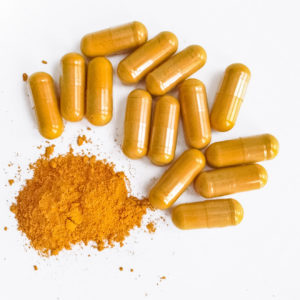 Curcumin is a component of the spice turmeric, which can be found in many people’s spice cabinets. Commonly consumed in many Asian countries as a culinary ingredient, it gives curry and mustard their yellow color. Turmeric has also been used for medicinal purposes for centuries.
Curcumin is a component of the spice turmeric, which can be found in many people’s spice cabinets. Commonly consumed in many Asian countries as a culinary ingredient, it gives curry and mustard their yellow color. Turmeric has also been used for medicinal purposes for centuries.
Curcumin is the biologically active agent in turmeric. Approximately 2% to 5% of turmeric is composed of Curcumin. Many studies and clinical evidence confirm that curcumin delivers myriad benefits to cancer patients. One of its primary proven benefits is its anti-inflammatory effect.
Inflammation fighter
An abundance of evidence from numerous studies (preclinical, animal and clinical) strongly suggest curcumin exerts potent anti-cancer and anti-inflammatory activities.
It is well-known that chronic inflammation is an underlying problem and driver of many diseases, including cancer. And, cancer further drives and spreads internal-chronic inflammation. The NF-kB (nuclear factor kappa beta) protein, a proinflammatory signaling pathway (aka – transcription factor), is essentially the “master-switch” for inflammation. It is one of the most important molecules linking chronic inflammation to cancer problems, including cell proliferation, angiogenesis, tumor promotion and metastasis.
Inhibiting and suppressing NF-kB signaling is a therapeutic objective when fighting cancer, and the natural agent curcumin has been shown to be effective in achieving this goal. An abundance of evidence from numerous studies (preclinical, animal and clinical) strongly suggest curcumin exerts potent anti-cancer and anti-inflammatory activities. In addition to its role in fighting cancer, curcumin plays a multifaceted role in cancer prevention. Due to its many anti-inflammatory benefits, it also delivers a cascade of other benefits for other inflammatory conditions, including arthritis.
Personally (and not for cancer reasons), I have found curcumin to be very effective, and I incorporate it into my daily supplementation regimen to alleviate sundry aches and pains, by mitigating that gnarly instigator: inflammation. For me, it works wonders!
Curcumin dosage and interactions
Dosage always matters, whether a patient is using pharmaceutical drugs or evidence-based supplements. Thus, an individual patient’s issues will dictate appropriate dosing. Curcumin has been used, up to 12 grams per day, for up to three months without any significant side-effects, although most cancer patients take a lesser amount of approximately 3.0 to 8.0 grams per day, for longer time periods.
Also, drug interactions need to be assessed with any supplement or pharmaceutical agent. It has been suggested that curcumin may have an anticoagulant effect, thus if a patient is already taking anticoagulant agents (such as blood thinners), caution would be advised.
Absorption
One challenge with curcumin is the notion that it is not bioavailable — in other words, it doesn’t absorb well into one’s system. Thus, it is advisable to take curcumin (if a capsule or tablet) with bioperine or piperine (derived from black pepper) which, purportedly, helps enhance absorption. Many curcumin supplements include this component in their ingredients.
Of course, effective cancer protocols require a sophisticated multifaceted approach. I strongly recommend you explore curcumin as a strong anti-inflammatory agent, to be included in the toolbox of comprehensive and effective interventions.
Finally, prior to embarking on any medical or healthcare protocol, intervention or regimen, always seek the counsel of a qualified doctor or healthcare professional.
Learn more about curcumin, and the power of other integrative therapies, in my book, Hope Never Dies.


